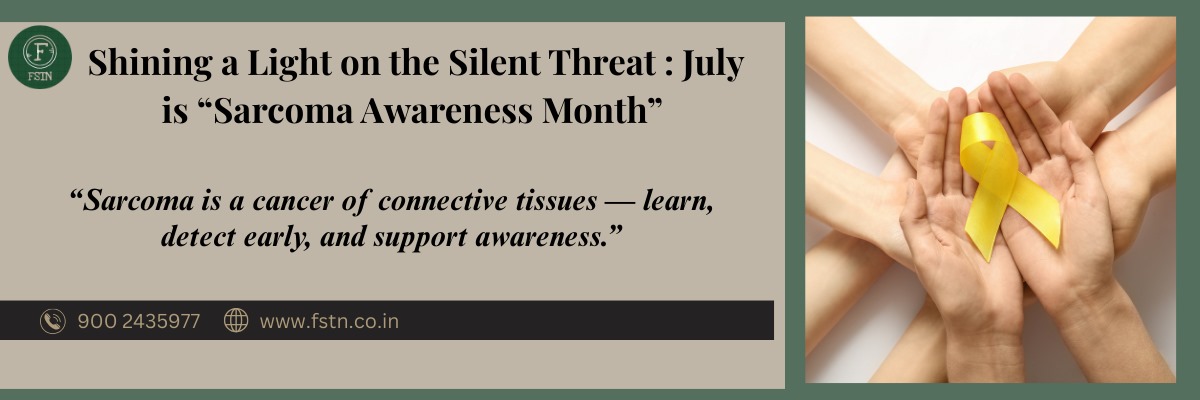July is observed as Sarcoma Awareness Month to highlight one of the most overlooked types of cancer—Sarcoma. Though rare, its effects are serious and often go unnoticed until advanced stages.
What is Sarcoma?
Sarcoma is a rare cancer that arises from connective tissues like bones, muscles, fat, nerves, and blood vessels. While it’s uncommon in adults, sarcomas account for about 15% of childhood cancers, making awareness critical.
Types of Sarcoma:
Soft Tissue Sarcomas (affecting fat, muscles, and blood vessels)
Bone Sarcomas (like osteosarcoma and Ewing sarcoma)
Symptoms to Watch For:
A painless lump or swelling
Persistent bone pain
Unexplained weight loss or fatigue
Reduced joint mobility
Dietary Treatment:
Food is not an ultimate cure for cancer, but medical nutrition therapy is one of the vitals during and after treatment to support healing, strength, and quality of life.A balanced, High-Protein and Energy-rich diet is essential for sarcoma patients to support immunity, preserve muscle mass and also aid in recovery. During treatment-related discomfort, choose soft-easily digestible foods to ensure adequate nutrition and better tolerance.
During Treatment:
To fight fatigue and nourish the body, choose high-protein, easy-to-digest meals like khichdi, soups, smoothies, along with energy-boosting plant proteins like nuts, seeds, and lentils.
Post-Treatment Diet:
Eat antioxidant-rich fruits and vegetables (amla, berries, spinach).
Include omega-3s from flaxseeds and walnuts.
Stay hydrated with coconut water, lemon water, herbal tea.
Take small, frequent meals to manage appetite and digestion.
Mental and Emotional Health:
Sarcoma impacts more than the body. Emotional issues and isolation are common after surgeries or long treatments.
Support includes:
Counseling or psycho-oncology care
Physical rehabilitation
Patient support groups and survivor stories
Why This Month Matters:
Sarcoma makes up <1% of adult cancers, but 15% in children
Symptoms are often vague, delaying diagnosis
Treatment may include surgery, chemotherapy, radiation, or amputation
Final Note:
Though rare, sarcoma has a deep impact. It often grows unnoticed in connective tissues, affecting lives silently. Raising awareness ensures early detection, better support, and stronger research efforts.



